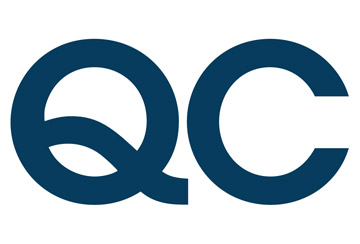By Matt Kelly
Florida League of Cities
Generally, employers are required to accommodate the religious practices of their employees due to Title VII of the Civil Rights Act of 1964.[1] An employer is not required to accommodate an employee’s religious practice, and can deny an accommodation request when the accommodation would impose an “undue hardship on the conduct of the employer’s business.”[2] The courts have recently changed their interpretation of “undue hardship,” which means employers must change how they review employee requests for religious accommodations.
Historically, the courts interpreting “undue hardship” have defined it as “any effort or cost that is ‘more than de minimis.’”[3] This interpretation placed a relatively low burden on employers denying religious accommodation claims, as de minimis is commonly defined as insignificant or negligible. Under this standard, accommodation requests relating to simple accommodations such as relaxation of dress codes and coverage for occasional absences were denied by employers and upheld by courts as an undue hardship requiring more than a de minimis cost.[4]
NEW STANDARD
In the summer of 2023, the Supreme Court of the United States revisited this standard in the case of Groff v. DeJoy. Groff involved a Christian U.S. Postal Service (USPS) employee who believed, for religious reasons, that Sunday should be devoted to worship and rest. The employee faced progressive discipline for failing to work on Sundays, resigned from the USPS and ultimately brought a lawsuit alleging that USPS could have accommodated his Sunday Sabbath practice.[5] The lower courts ruled in favor of the USPS under the de minimis standard and said that exempting Groff from
Sunday work “imposed on his coworkers, disrupted the workplace and workflow, and diminished employee morale.”[1]
The Supreme Court took this opportunity to revisit the de minimis standard and clarified what warrants “undue hardship” when reviewing religious accommodations under Title VII. The Supreme Court stated that undue hardship “means what it says, and courts should resolve whether a hardship would be substantial in the context of an employer’s business in the common-sense manner that it would use in applying any such test.”[2] Said more plainly, an employer can no longer avoid providing a religious accommodation by showing a cost is more than insignificant/negligible and must now show a “substantial increased cost.”[3]
EFFECT ON EMPLOYERS
This new standard will make it more difficult for employers to deny religious accommodation requests as it will be necessary to show that such an accommodation would cause a substantial increased cost rather than just an increased cost that is more than minimal.
Employers will have to be more thoughtful in reviewing such accommodation requests as it will take time for this new standard to be interpreted, developed and applied to specific situations for guidance. The Groff case gave some guidance stating that coworker or employer animosity to a particular religion, to religion in general or to the notion of accommodating religious practice cannot be considered an undue hardship. Also, in denying a request, employers cannot simply conclude that one accommodation would cause an undue hardship but must consider other potential accommodation options. In Groff, the Court said that it is not enough for the USPS to conclude that forcing other employees to work overtime is an undue hardship when it could consider other options, such as voluntary shift swapping.[4]
Employers will need to adjust the standards of review for religious accommodations. The size of the employer is now more likely to be relevant. Employers with larger workforces and greater resources may have a more difficult time showing that an accommodation substantially increases costs for the business or organization.
As the new standard is analyzed and tested, employers should:
- review their current policies and procedures for handling religious accommodation requests and consider the heightened standard
- educate human resources staff about this change
- explore all potential accommodations that may address the situation
- monitor Equal Employment Opportunity Commission (EEOC) and court guidance.
[1] Groff v. DeJoy, 600 U.S. 447, 453-54 (2023).
[2] 42 U.S.C. § 2000e(j); Groff, 600 U.S. at 454.
[3] Id.
[4] See, e.g., Wagner v. Saint Joseph’s/Candler Health System, Inc., 2022 WL 905551, *4–*5 (SD Ga., Mar. 28, 2022) (Orthodox Jew fired for taking off for High Holy Days); Camara v. Epps Air Serv., Inc., 292 F.Supp.3d 1314, 1322, 1331–1332 (ND Ga., 2017) (Muslim woman who wore a hijab fired because the sight of her might harm the business in light of “negative stereotypes and perceptions about Muslims”); El-Amin v. First Transit, Inc., 2005 WL 1118175, *7–*8 (SD Ohio, May 11, 2005) (Muslim employee terminated where religious services conflicted with “two hours” of training a week during a month of daily training); EEOC v. Sambo’s of Ga., Inc., 530 F.Supp. 86, 91 (ND Ga., 1981) (hiring a Sikh man as a restaurant manager would be an undue hardship because his beard would have conflicted with “customer preference”).
[5] Groff, 600 U.S. at 455-56.
[6] Groff v. DeJoy, 35 F.4th 162, 175 (3d Cir. 2022), cert. granted, 600 U.S. 447 (2023), and vacated and remanded, 600 U.S. 447 (2023).
[7] Groff, 600 U.S. at 471.
[8] Id. at 470.
[9] Id. at 472-73.
Matt Kelly is an Assistant General Counsel at the Florida League of Cities.

